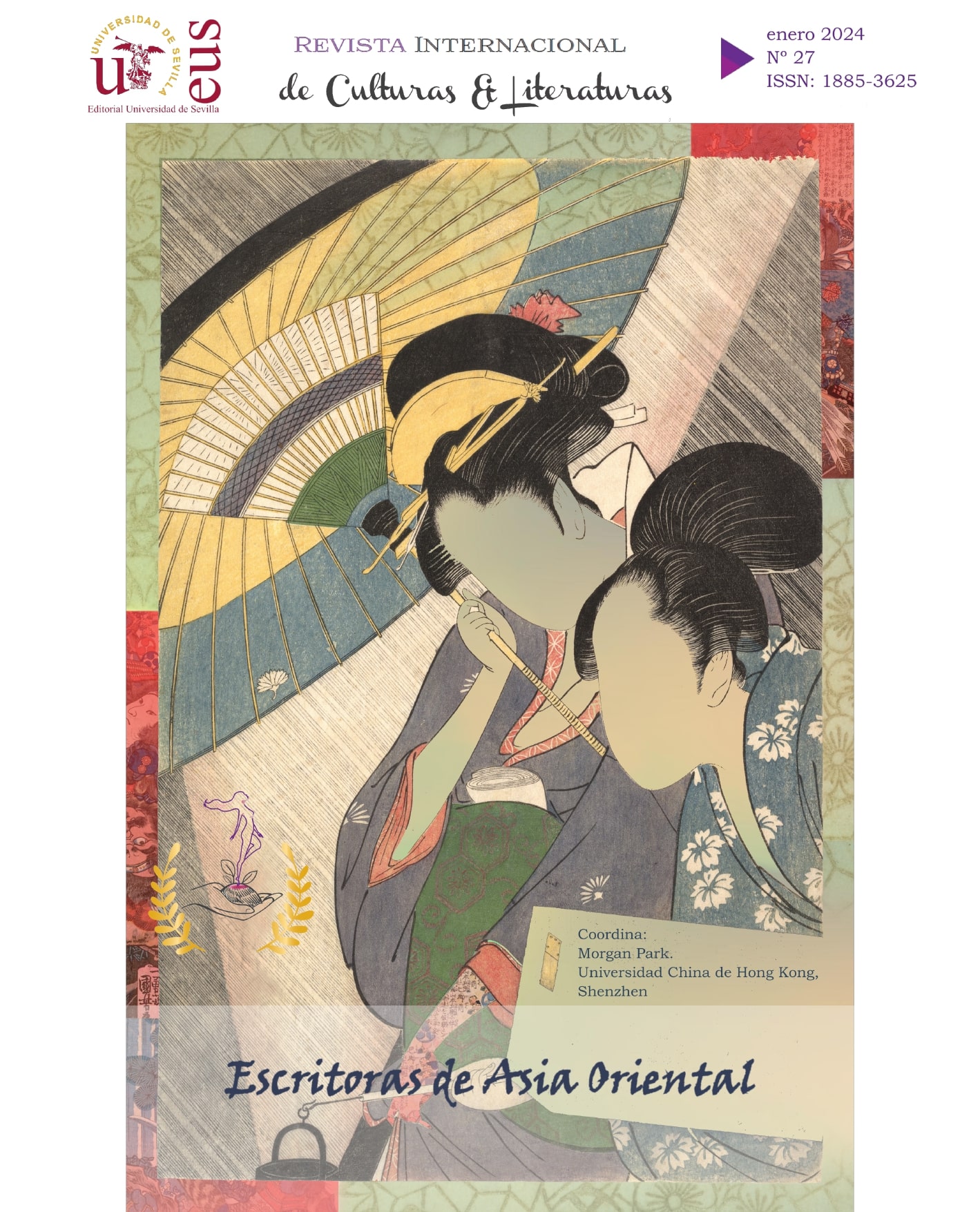CHASTITY AS A STATE ISSUE: ON DING LING’S ‘‘WHEN I WAS IN XIA VILLAGE’’
DOI:
https://doi.org/10.12795/RICL2024.i27.01Keywords:
Chastity, Ding Ling, woman, LiteratureAbstract
In the Chinese tradition, during the imperial era, female chastity was one of the virtues most valued in a woman. This notion was so deeply rooted in society that we see how it still survives in the early decades of the twentieth century, despite the founding of the Republic of China. In this article we intend to approach chastity from a double perspective: both as a moral aspect related to sexuality, as well as its recurrence as a metaphor for political and national stability. For this purpose, we will make a historical review of the concept, to reflect later, on the story of the writer Ding Ling, When I was in the Xia village, which will allow us to demonstrate in one hand the survival of traditional ideas, and in the other hand its political dimension. We will also relate this story to other cultural productions from the time of this publication that reinforce the same view of this reality.
Downloads
References
BOSSLER, Beverly (2004). “Gender and Empire: A View from Yuan China”. The Journal of medieval and early modern studies, 34.1, pp. 197-224.
CARLITZ, Katherine (2001). “The daughter, the singing-girl, and the seduction of suicide”. Nan nü: men, women, and gender in early and Imperial China, 3.1, pp. 22-46.
CARLITZ, Katherine (2013). ““The role of gazetteers in promoting suicide in Republican China / 論民國時期地方志對女性自殺行為的推動作用”. Journal of Oriental Studies, 46 (2), pp. 1-21.
CHEN, Jianzhong (2018). 抗战漫画精粹 [Selección de Viñetas de la Guerra de Resistencia Vol.1]. Shanghai: Shanghai Bookstore Publishing House.
CHENG, Anne (2002). Historia del pensamiento chino. Barcelona: Edicions Bellaterra.
DING, Ling (2001). 丁玲全集 [Obras completas de Ding Ling]. Hebei: Hebei Renmin Press.
DING, Ling (2001). I Myself Am Woman: Selected Writings of Ding Ling, Barlow, T. y Bjorge, G. (ed.). Boston: Beacon Press.
DING, Ling (1986). “Cuando estuve en el pueblo de Xia”. Estudios de Asia y Africa, 21.3, pp. 491- 510.
EBREY, Patricia (2002). Women and the Family in Chinese History. Abingdon: Routledge.
EDWARDS, Louise (2012). “Women Sex-spies: Chastity, National Dignity, Legitimate Government and Ding Ling's `When I was in Xia Village´”. The China Quarterly, 212, pp.1059-1078.
EDWARDS, Louise (2013). “Drawing Sexual Violence in Wartime China: Anti-Japanese Propaganda Cartoons”. The Journal of Asian Studies, 72(3), pp. 563-586.
GOLDIN, Paul Rakita (2002). The culture of sex in ancient China. Honolulu: University of Hawai‘i Press.
KINNEY, Anne Behnke (2014). Exemplary Women of Early China: The Lienü Zhuan of Liu Xiang. New York: Columbia University Press.
LI, Wai-Yee (1999). “Heroic Transformations: Women and National Trauma in Early Qing Literature”. Harvard Journal of Asiatic Studies, Vol. 59. N.2, pp. 363-443.
LI, Xiaorong (2012). Women´s Poetry of Late Imperial China. Transforming the inner chambers. Seattle: University of Washingtong Press.
LIU, Lydia H. (1993). “Invention and Intervention: The Making of a Female Tradition in Modern Chinese Literature”, En From May Fourth to June Fourth, Vol. 9. Cambridge: Harvard University Press, 2021. 194–220.
NG, Vivien (1987). “Ideology and Sexuality: Rape Laws in Qing China”. The Journal of Asian Studies, 46(1), pp. 57-70.
PANG-WHITE, Ann (2018). The Confucian Four Books for Women. A new Translation of Nü Sishu and the Commentary of Wang Xiang. New York: Oxford University Press.
PLANAS PENADÉS, Ricard (2019). Historia del cine chino, Barcelona: Berenice.
SCHMIDT, Jonh D. (2008). “Yuan Mei (1716–98) on Women”. Late imperial China, 29.2, pp.129–185.
TERAZAWA, Yuki (2006). “The Transnational Campaign for Redress for Wartime Rape by the Japanese Military: Cases for Survivors in Shanxi Province”. NWSA Journal, 18(3), pp. 133-145.
XIAO, Hong (2018). Campos de vida y muerte y otros relatos, Tejeda Martín, Teresa I. (traducción), Barcelona: Bellaterra, 2018.
YAN, Haiping (2006). Chinese Women Writers and the Feminist Imagination, 1905–1948. New York: Routledge.

